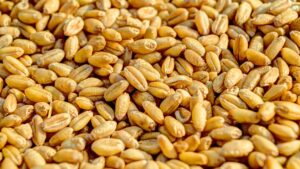Gene Editing, Off-Patent Technology and Data Science Give Rise to F2F Genetics Network
Today, Aug. 14, Farmer’s Business Network, Inc., launches F2F Genetics Network, a “new” kind of seed company that capitalizes on its member network and the resulting aggregate data. At the helm of this new company is Ron Wulfkuhle, who formerly served as head of GreenLeaf Genetics (Syngenta’s licensing arm).
According to a news release distributed by the company this morning, F2F Genetics Network is a new model for the future of seed development and direct-to-farm distribution, with a focus on delivering non-GM and post-patent seeds in corn, soybeans and other crops and a mandate of “greater transparency on genetic identity, yield performance and prices.”
“As I looked around the industry, I began to realize that there were some really good genetics and traits out there that just didn’t have an efficient path to market,” Wulfkuhle says.
He explains that in the past few years, as the seed industry has gone through increased consolidation, it’s been even harder to bring new products onto the market and to get them into the hands of farmers. By Wulfkuhle’s calculations, there are only about 30 independent breeders working on corn.
“I really saw this as an opportunity,” he says.
As an example of the types of products F2F Genetics Network will be distributing, Wulfkuhle points to FBN’s partnerships with Calyxt to distribute its high-oleic soybeans and Arcadia BioSciences’ to distribute its GoodWheat, a family of specialty wheat varieties.
Calyxt and Arcadia BioSciences are both food ingredient companies and both rely on best management practices by farmers for identity preservation of their products. The companies believe that through FBN’s farmer network, they can increase their product distribution and get them into the right hands for proper stewardship, ultimately benefitting the end user.
In announcing the partnership with FBN, Arcadia president and CEO Raj Ketkar said the agreement was a critical milestone in the development of its supply chain and its ability to scale the company’s specialty wheat production to meet the anticipated demand following commercial launch in 2019.
Similarly, Federico Tripodi, CEO of Calyxt, said: “As a specialty food ingredients company, Calyxt has been building its supply chain in preparation for the commercial launch of its first product, high oleic soybeans in 2018. … By working together, the companies will be able to offer turnkey solutions aiming to increase profitability for farmers interested in growing identity-preserved soybeans.”
These are companies that are innovating and bringing new products to market, but they don’t have a sales force in place.
“We can not only get products into the hands of farmers, but we can also segment and target that technology to the right farmers who are already doing identity preservation practices,” Wulfkuhle explains. “We have a much more rifled approach to audience segmentation.”
Admittedly, Wulfkuhle says F2F Genetics Network’s approach is radically different from the rest of the seed industry. Our focus, he says, is on data transparency, price transparency, parentage.
Three Guiding Pillars
With more than 25 million acres enrolled by farmer members, F2F Genetics Network has millions of individual data points that collectively tell a story and help breeders identify trends and development needs.
As part of their profile, every farmer enters numbers on their planting, chemical application and yields. These are real growing conditions, Wulfkuhle adds — not company-based trials and plots. Any member can login and look at the performance characteristics of a certain hybrid or variety; and the more members that participate, the stronger the network becomes.
Over the years, the seed industry as a whole has earned a bad reputation for product pricing based on zones. For instance, in areas with heavy fall armyworm infestation, a Bt-traited product may have a 50 percent markup compared to areas with little-to-no infestation.
Wulfkuhle says their approach is “no zone pricing,” and farmers can see how what they pay compares to that of other farmers. To date, he says more than 16,000 invoices have been submitted into the system. Member farmers can see the lowest price paid for a product and the highest price paid for a product and know how they ranked in comparison.
Additionally, Wulfkuhle says it’s important for farmers to know what’s in the bag of seed they are buying. A farmer may be planting five different varieties, but it’s possible that three of them share the same female parent. “It’s about helping them to minimize risk,” he says.
If these three pillars don’t shatter the seed industry’s status quo, F2F Genetics Network’s Soy+1 program will: For a fee, it allows farmers to keep, clean and replant company-branded soybean seeds.
Wulfkuhle says that after farmers have grown, harvested and conditioned seed but prior to storage, they will run a battery of quality tests and then provide that information to the farmer. We want them to make sound decisions that are in the best interest of their farm. If the quality isn’t up to par, he says, then they can decide not to replant. But if it is, then they have the opportunity to do so.
So what’s on the market?
According to the company, orders and commitments for F2F Genetics Network seed are already underway for the 2019 growing season. To date, this includes five conventional corn hybrids (RM 102-112) and four glyphosate-tolerant soybean varieties (RM 2.2-3.1).
Pricing is $99 per bag for convention corn and $29 per bag for glyphosate tolerant soybeans.
F2F Genetics Network looks to continue building its network of partners and adding products to its portfolio.
When we were starting to form this seed company, Wulfkuhle says we asked: “What can be done differently in the world of seed to the benefit of farmers?”
“We are really partnering with farmers to provide information for farmers, and it’s ultimately benefitting farmer profitability,” he says.
Wulfkuhle recognizes this approach will be met with concerns from the industry, but he believes in shattering the status quo.
“I was fortunate enough to be on the development team of the first Bt corn and the first Roundup Ready soybean,” he says, noting that when he was with an executive from ConAgra at the time, the statement was made that agriculture would never be the same.
Fast forward nearly 20 years and farmers can use the power of data science and a data network to improve their business and farm operations. “We are at a new advent in history,” Wulfkuhle says.
Stay tuned as we talk to more people and learn more, today and in the coming weeks.












